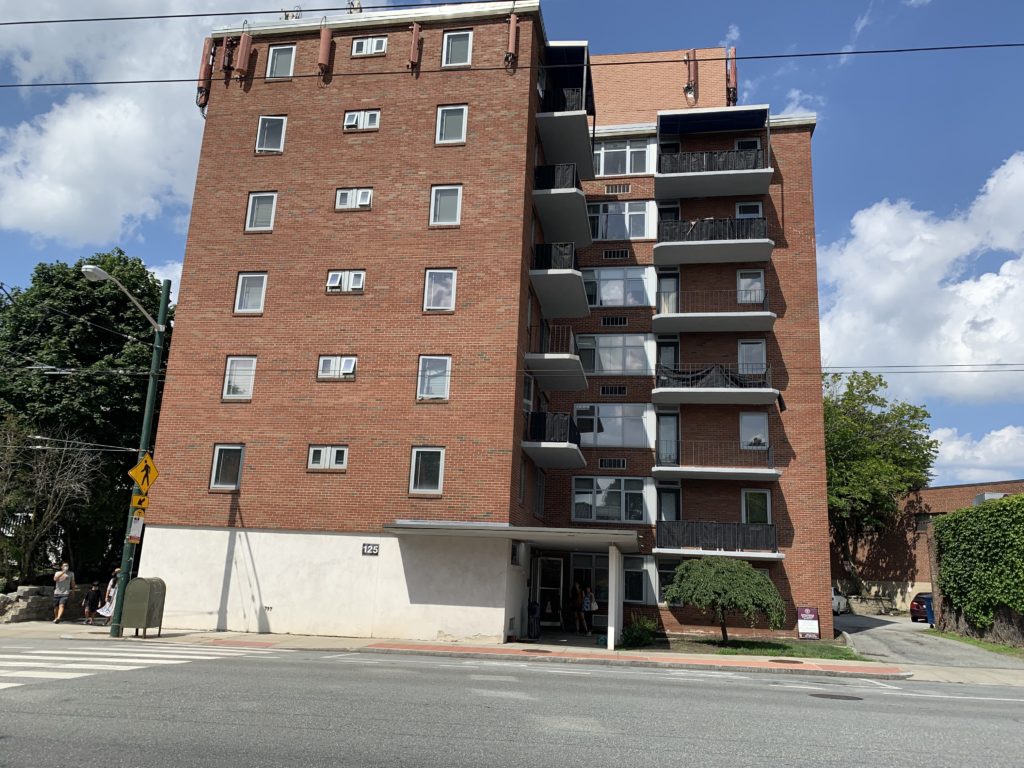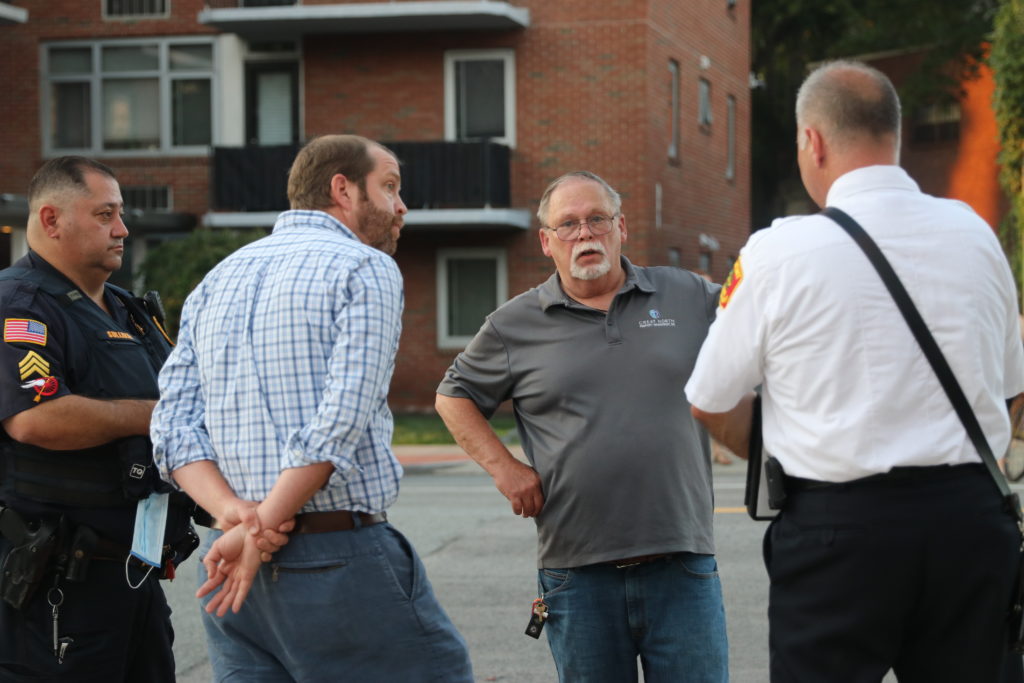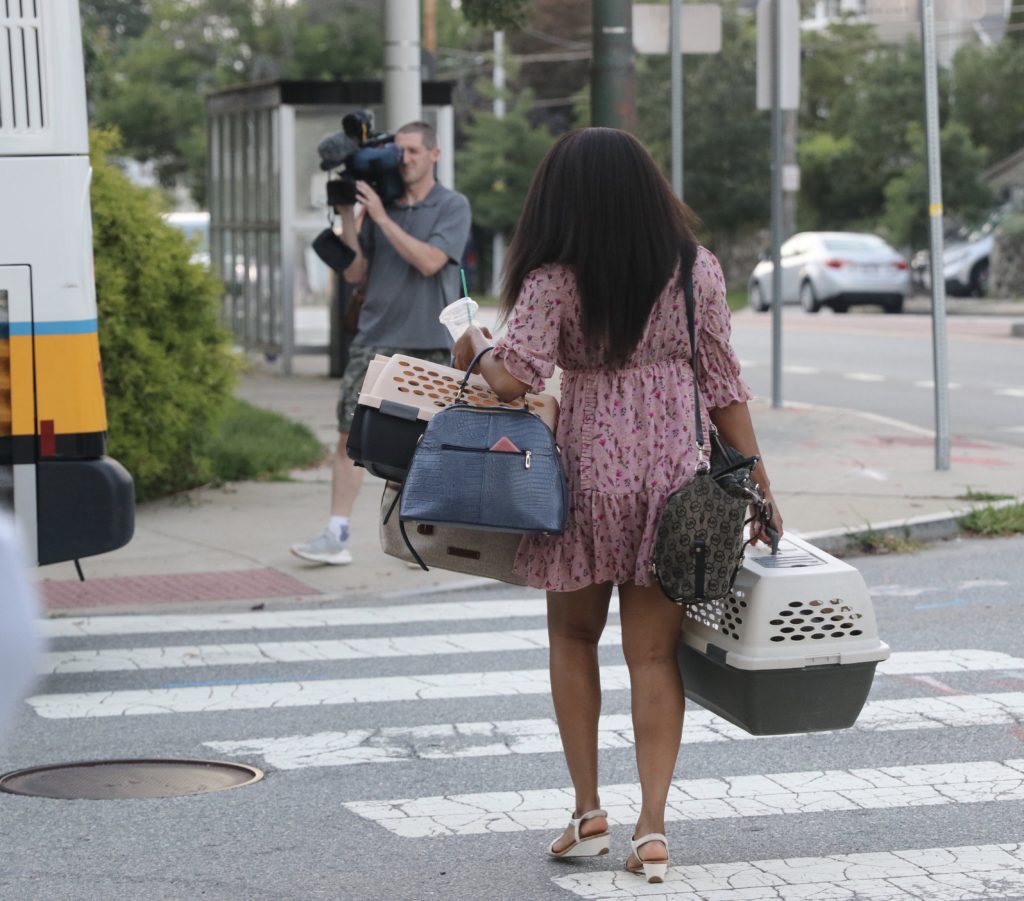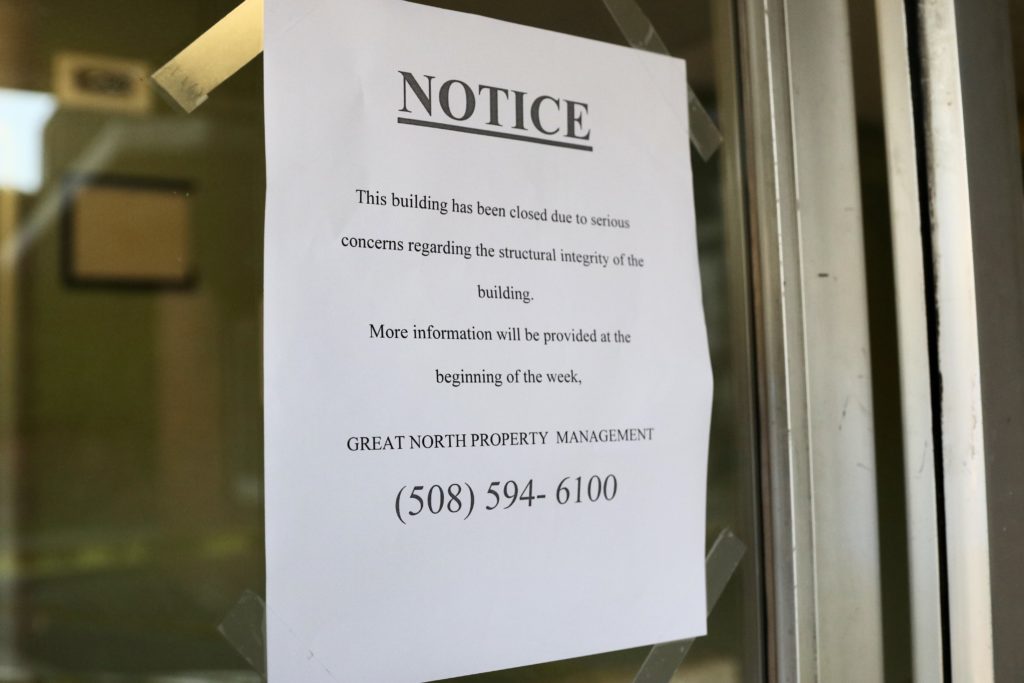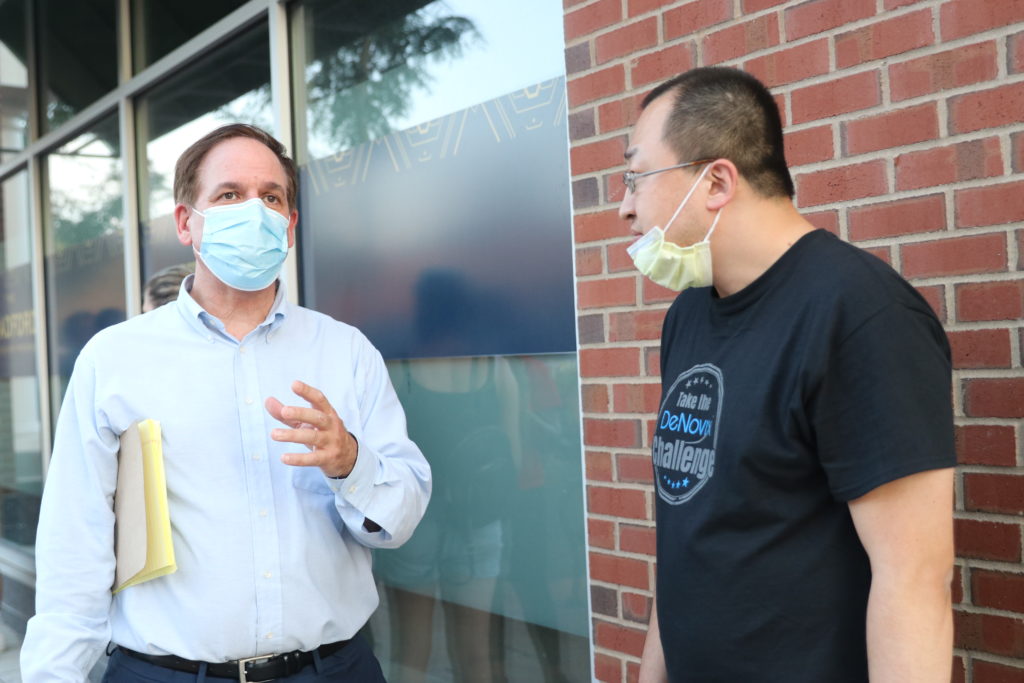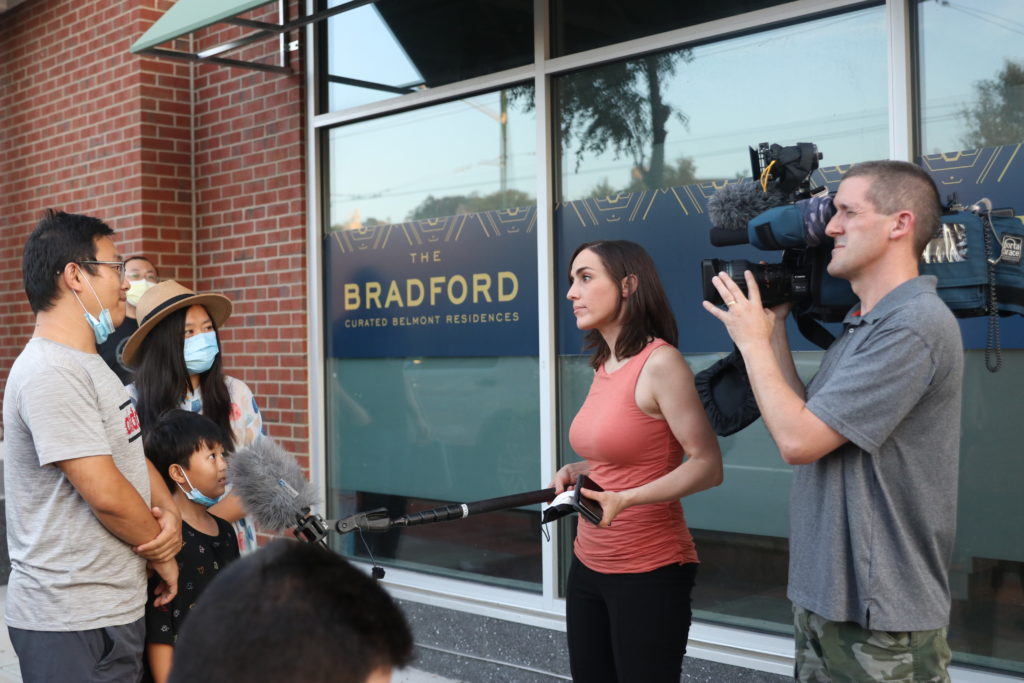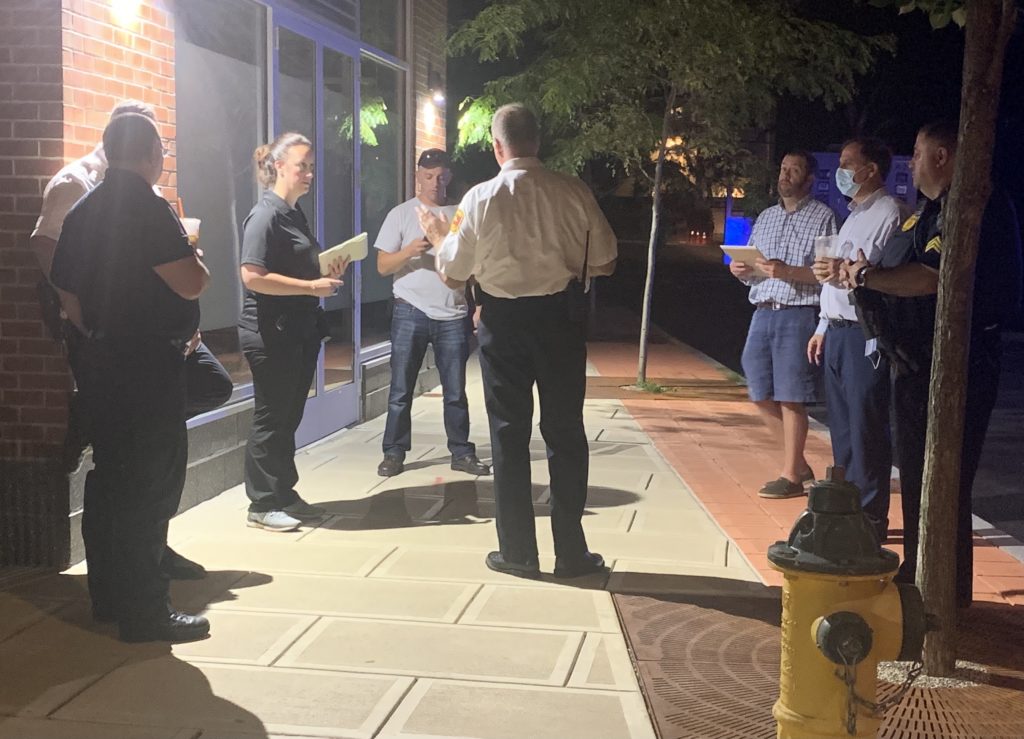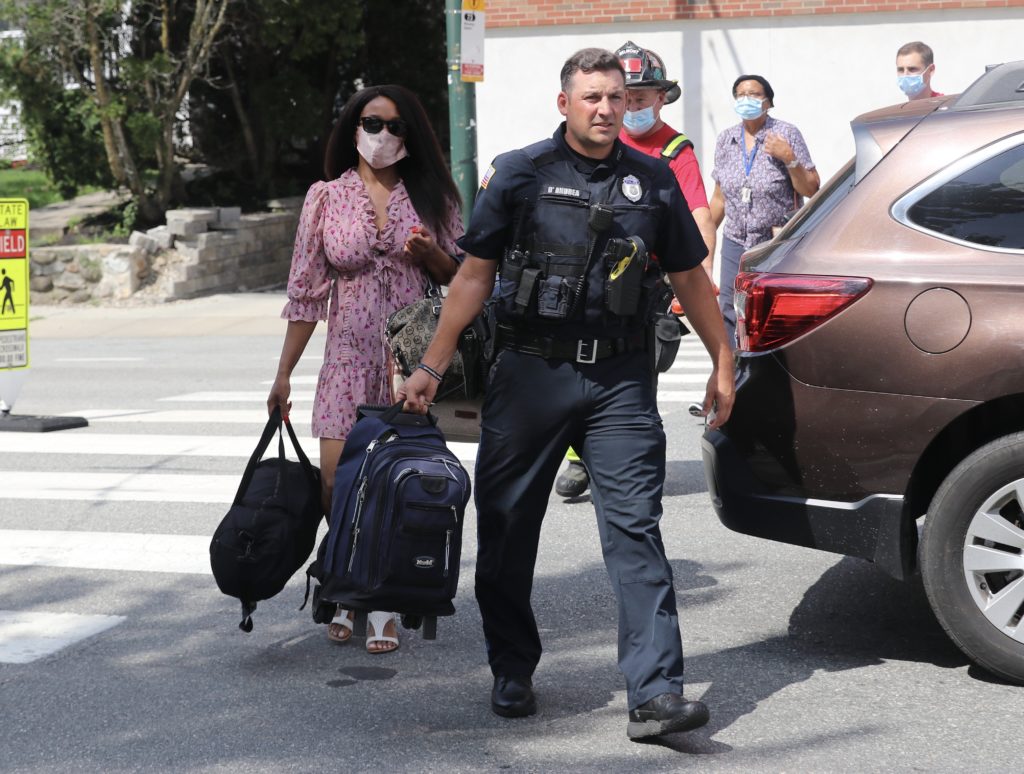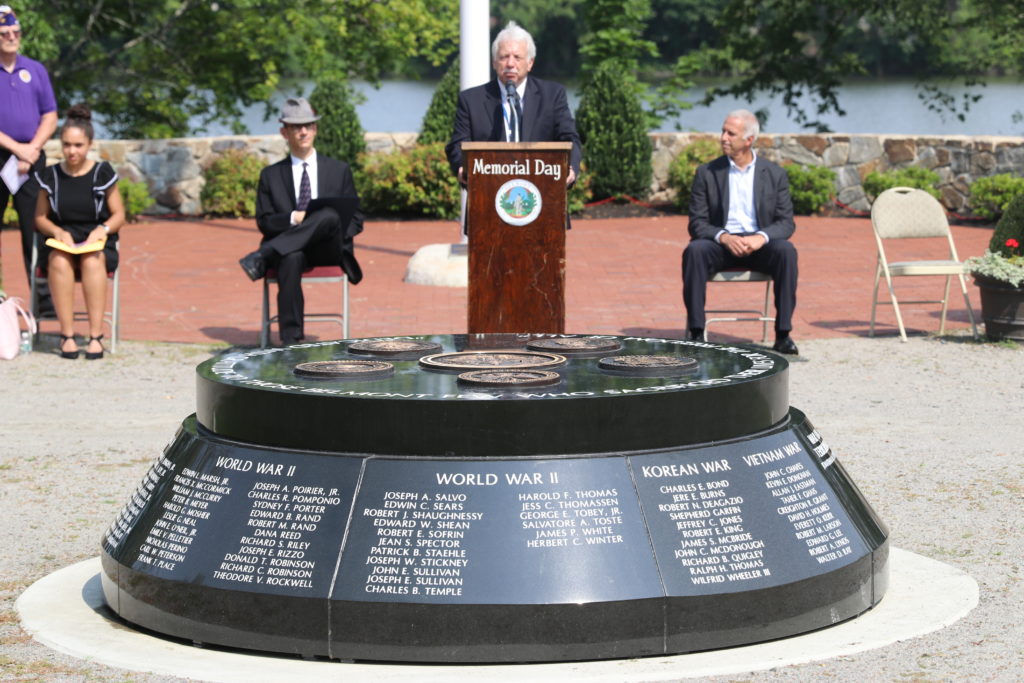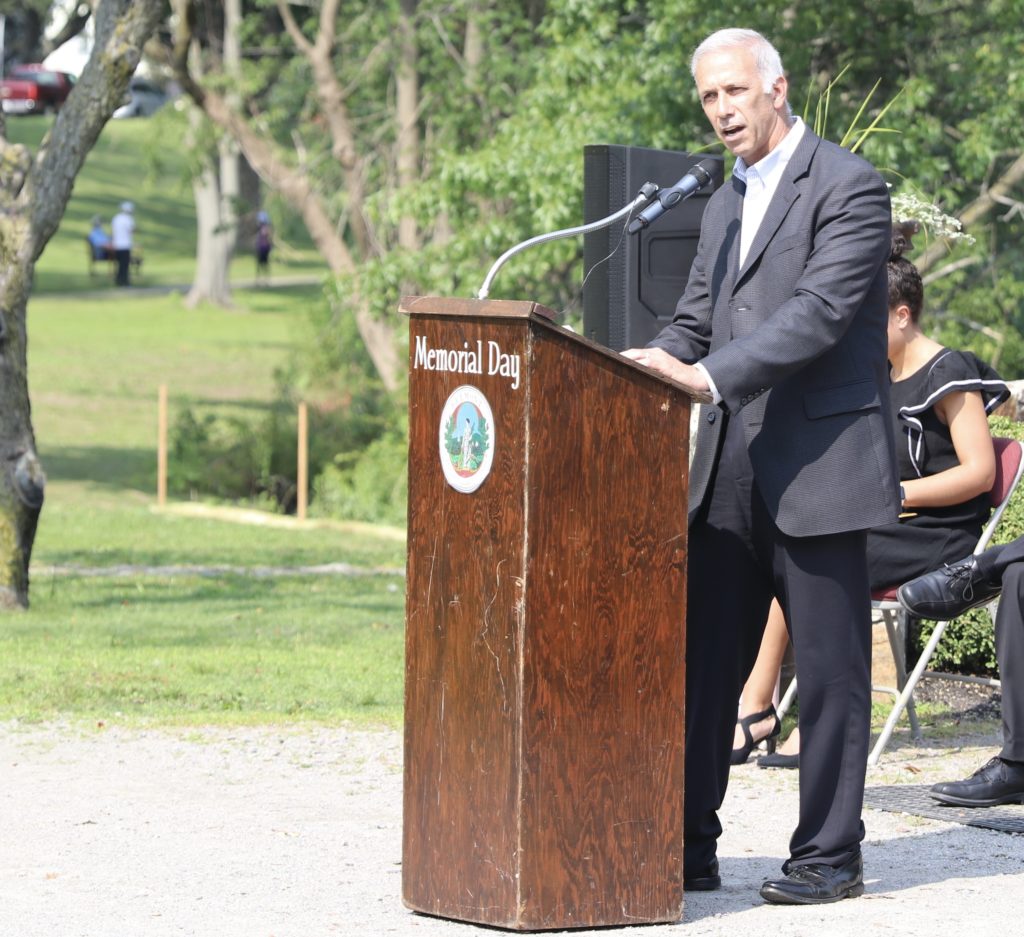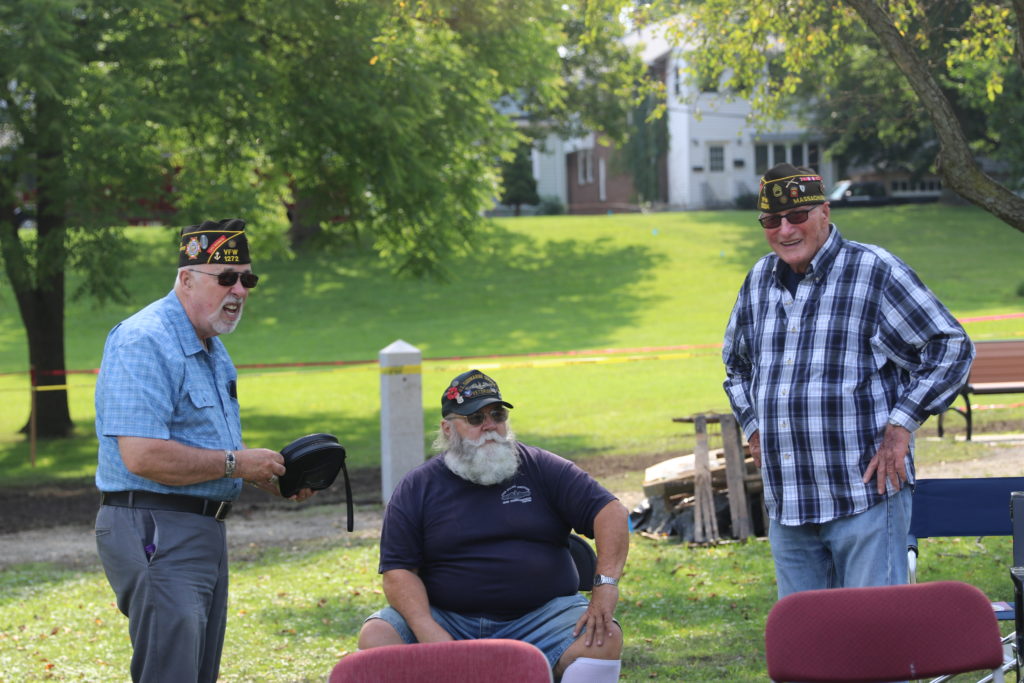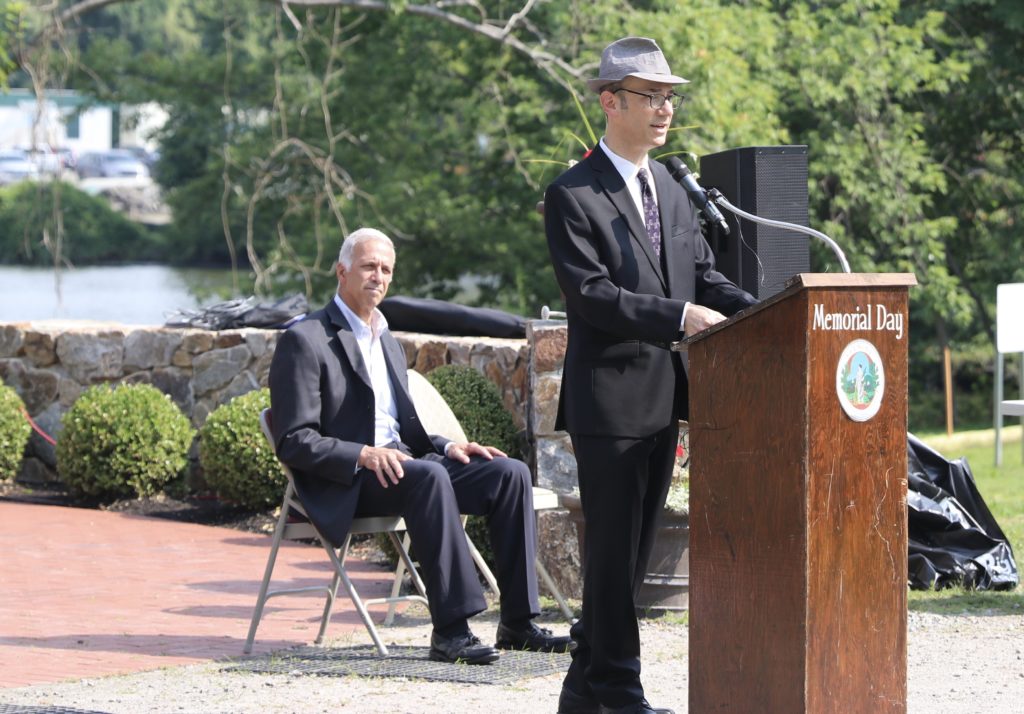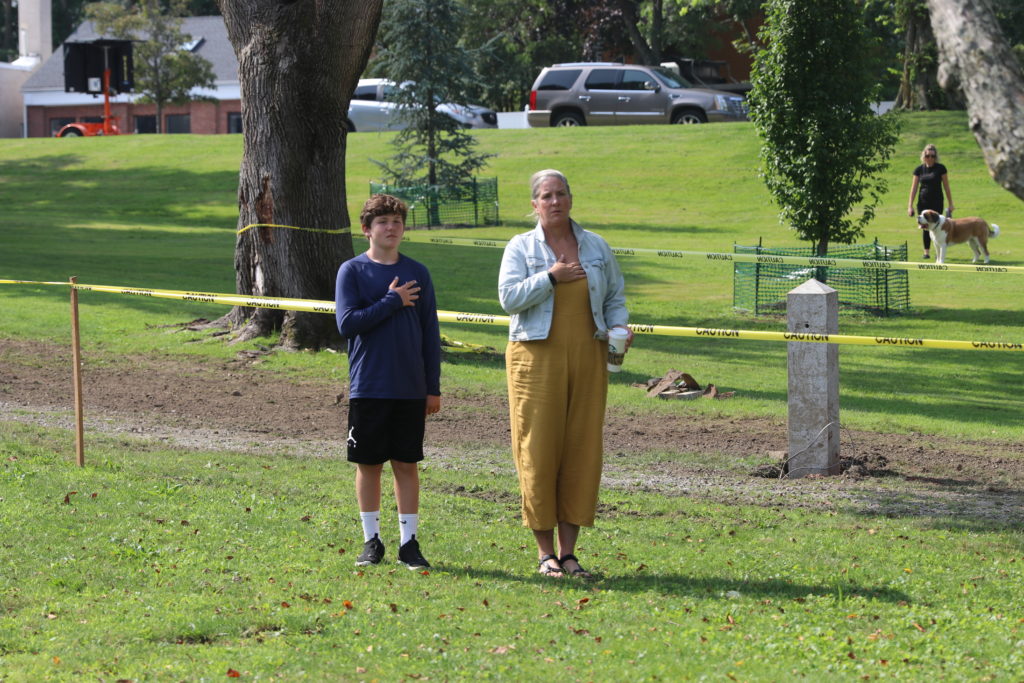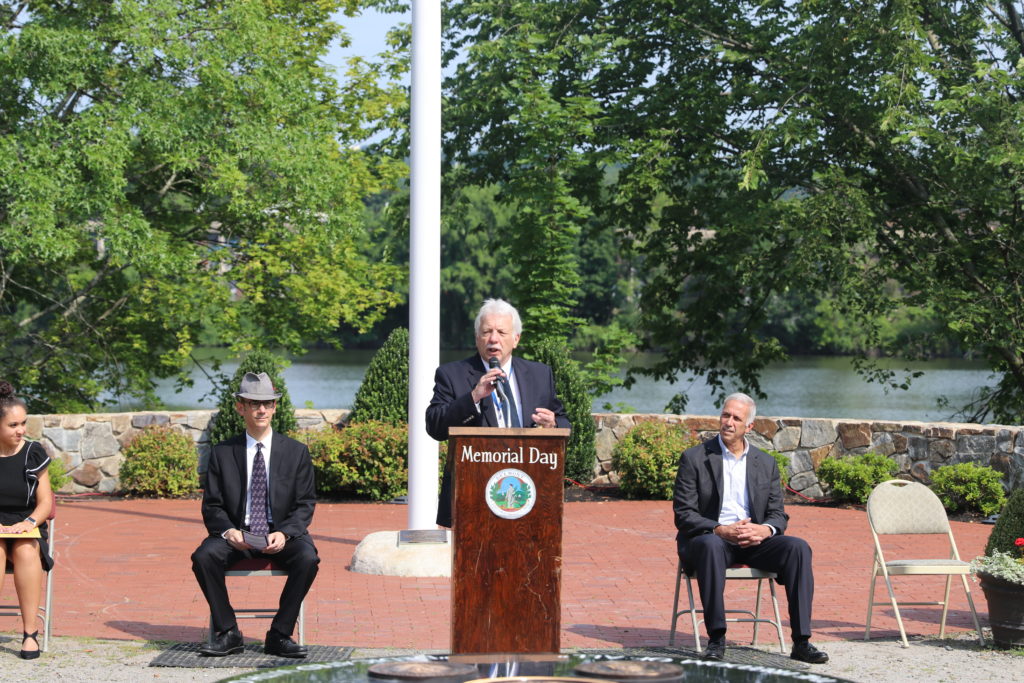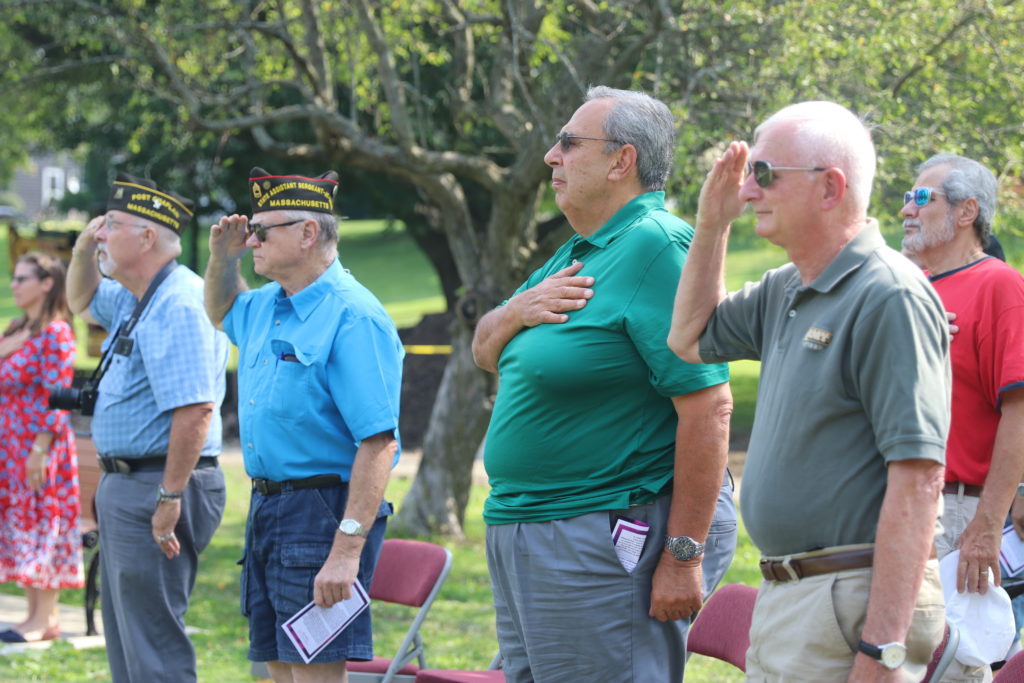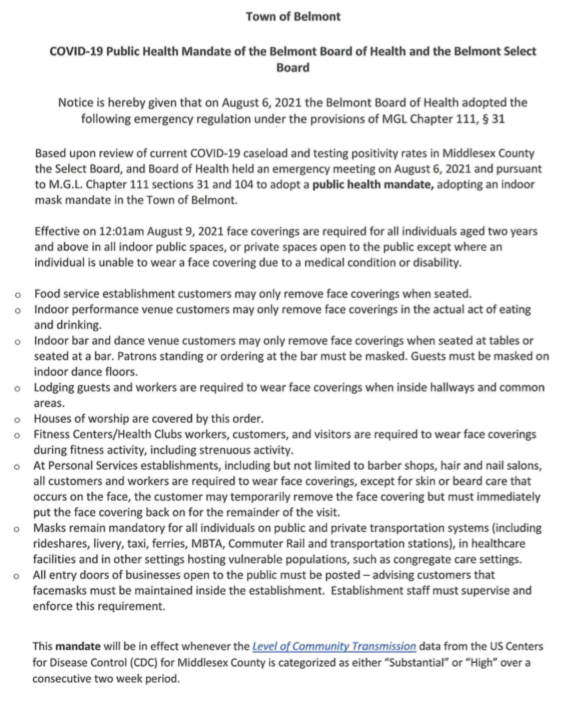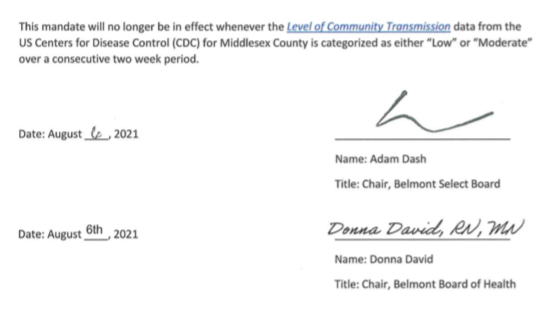Photo: A sign you’ll see in schools by the holiday break
Parents and students hoping for a quick end to the mask mandate in Belmont schools – specifically for high school students – saw their wishes dashed as the head of the Belmont Board of Health believes masks will be a part of the school day up to the holiday break in the last weeks of December.
The declaration by Chair Donna David came during the Board of Health’s Aug. 16 meeting during which the board clarify aspects of the town-wide indoor mask mandate that passed on Aug. 6 as well as make clear that the schools and town will have different standards of when to end mask requirements.
Based on public feedback after the previous week’s Belmont School Committee’s, there was a desire to clarify the confusion of when the town-wide mask mandate would end in the Belmont schools, said Wesley Chin, Belmont’s Health Department director. Under a sunset clause in the town-wide directive, the face covering requirements will be lifted when Middlesex county records two consecutive weeks of lower infection rates.
In the board’s new plan, the schools’ mask mandate is now a separate from the town’s document. “Pretty simple and straightforward,” said David.
The new regulation states: “Face coverings are required for all individuals aged two years and above except where an individual is unable to wear a face covering dude to a medical condition disability.”
Under the new regulation, the board will incorporate guidance and data from the Centers for Disease Control and Prevention, the American Academy of Pediatrics, and the state’s Department of Health to decide when the mask mandate will be dropped.
While the board will be monitoring the data and taking daily advice from the town’s health department, David said until the Covid-19 vaccine is available to children under 12 – both Pfizer and Moderna say they anticipate sharing results and seeking authorization for their vaccine in ages 5 to 11 as early as September or October – and the number of overall cases are declining, she doesn’t see a reason to remove the mandate and “this could easily be in effect through December.”
”This brings a little stability to what we’re doing and what our line of thinking is,” said David. Until the under 12 vaccine is available, “‘we’re kind of in a holding pattern because, in the schools particular, we’re doing this to protect those who cannot be vaccinated.”
The board also voted to bring greater clarity to the town’s mandate after receiving public comments on the document the Select Board approved last week.
The four clarifications are:
- Indoor performers at public spaces such as the Beech Street Center, restaurants or schools are required to wear face coverings,
- Private residences are excluded from the mandate,
- Residents and employees in multi-unit homes and apartments are required to wear face coverings when inside common hallways and spaces, and
- Members and employees in private membership clubs are required to wear face coverings while indoors.
“It’s not drastically different, just more detailed,” said Adam Dash, chair of the Select Board which reviewed the changes at its Monday night meeting.
